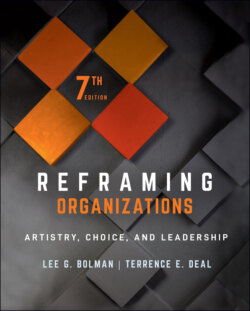Читать книгу Reframing Organizations - Lee G. Bolman - Страница 19
The Four Frames
ОглавлениеOnly in the past 100 years or so have social scientists devoted much time or attention to developing ideas about how organizations work, how they should work, or why they often fail. In the social sciences, several major schools of thought have evolved. Each has its own concepts, assumptions, and evidence espousing a particular view of how to bring social collectives under control. Each tradition claims a scientific foundation. But a theory can easily become a theology that preaches a single, parochial scripture. Modern managers must sort through a cacophony of voices and visions for help.
Sifting through competing voices is one of our goals in this book. We are not seeking or advocating the one best way. Rather, we consolidate major schools of organizational thought and research into a comprehensive framework encompassing four perspectives. Our goal is usable knowledge. We have sought ideas powerful enough to capture the subtlety and complexity of life in organizations yet simple enough to be useful. Our distillation has drawn much from the social sciences—particularly sociology, psychology, political science, and anthropology. Thousands of managers and scores of organizations have helped us sift through social science research to identify ideas that work in practice. We have sorted insights from both research and practice into four major frames—structural, human resource, political, and symbolic (Bolman and Deal, 1984). Each is used by academics and practitioners alike and can be found, usually independently, on the shelves of libraries and bookstores.
